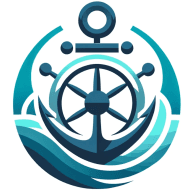6 Effective Training Programs for Maritime Logistics Teams
Unlock the full potential of maritime logistics teams with expert-backed strategies and innovative training programs. This article delves into the key methods for empowering professionals with practical, scenario-based learning and continuous skill development. Explore the insights from industry leaders on designing engaging, effective training experiences that align with the evolving demands of the maritime logistics sector.
- Prioritize Practical, Scenario-Based Maritime Training
- Implement Structured, Continuous Learning in Logistics
- Design Engaging, Goal-Focused Maritime Training Programs
- Personalize Learning Paths with AI Technology
- Foster Growth Through Hands-On Project Experiences
- Balance Regulatory, Technological, and Market Training
Prioritize Practical, Scenario-Based Maritime Training
At BASSAM Shipping, staying ahead in maritime logistics means committing to constant learning, but more importantly, making that learning practical. Over the years, I've realized that it's not enough to train teams on regulations or systems in isolation; the real value comes when they understand how these pieces work together during day-to-day operations. I prioritize training that reflects real-world scenarios--things like handling unexpected port delays, managing documentation under pressure, or adjusting routes based on sudden regulatory changes. These are the moments that test a team, and preparing them for such challenges is where growth happens.
We also make it a point to stay on top of evolving compliance standards, but instead of just relaying updates, we focus on why these changes matter operationally. When the team understands the bigger picture, they become more proactive, not just reactive. Technology is another key focus, but rather than just introducing tools, we ensure the team is confident in using them to solve actual problems, whether it's tracking cargo in real time or optimizing load plans.
In my experience, the best development happens when training stops feeling like a formality and starts becoming part of the workflow. That's the environment we aim to create--where learning is ongoing, deeply relevant, and directly tied to operational excellence.

Implement Structured, Continuous Learning in Logistics
Maritime companies should adopt a structured, continuous, and adaptive approach to training logistics teams to align with regulatory requirements, increase operational efficiency, and keep up with technological advancements.
The first step is identifying training needs through a Training Needs Analysis (TNA) to assess the logistics team's knowledge requirements and skill gaps. Areas to consider include what training is required for international regulatory standards, safety and compliance, and logistics. Don't forget to consider soft skills like leadership, problem-solving, conflict management, and communication.
Consider implementing a blended learning approach. Mentoring and instructor-led training can provide in-depth theoretical knowledge. Digital learning methods like e-learning modules and video training allow offline and self-paced learning.
To ensure training effectiveness, maritime companies should focus on equipping the education teams with the tools they need to build training in a timely manner, track progress and measure learning effectiveness.
Course authoring tools, especially AI ones, allow education teams to quickly build company-specific training in various modalities (eLearning, video and instructor-led training). AI can also help to translate and localize training content into different languages to appeal to a global workforce.
Maritime companies should also consider adding a Learning Management System (LMS) for their self-paced courses. Look for one that provides analytics, tracks course completion, enables users to test their knowledge, tracks assessment scores, identifies areas for improvement, and suggests content to the learner. These will ensure that crew members stay current and retain critical knowledge.
Remember, training your logistics team should not be a one-time event--plan for refresher courses and advanced certifications.

Design Engaging, Goal-Focused Maritime Training Programs
In maritime logistics, staying ahead of regulatory changes, safety protocols, and operational best practices is critical. At InfoAware, we design training that is relevant to learners' experiences, engaging, and tailored to real-world maritime challenges to ensure teams are prepared for the evolving demands of the industry.
Our approach prioritizes goal-focused learning, where we identify the core skills and functions maritime professionals need--whether it's understanding new IMO regulations, enhancing port security awareness, or improving vessel efficiency. By focusing on what they need to know and do, we eliminate unnecessary complexity and ensure training directly supports operational excellence.
To keep maritime logistics teams engaged and proactive, our InfoAware Learning Management System (LMS) goes beyond static e-learning. We integrate:
- Community forums, where ship crews, port operators, and logistics teams can share insights on emerging challenges like supply chain disruptions, environmental regulations, and security threats.
- Gamification, using role-based challenges, scenario simulations, and achievement badges to reinforce compliance and operational decision-making.
- Personalized learning paths, ensuring that crew members, shore-based teams, and leadership receive targeted training aligned with their responsibilities and industry requirements.
This interactive and adaptable approach ensures that learners don't just complete training as a check box exercise - they actively engage and collaborate to have an impactful learning experience.

Personalize Learning Paths with AI Technology
We've embraced an AI-driven approach to employee development that focuses on creating personalized learning paths. Analyzing each employee's skills, performance, and career goals, we tailor training programs that are both relevant and engaging. The AI system provides real-time feedback, allowing us to adapt the learning content to keep it fresh and effective. We also pair employees with mentors, combining technology with personal guidance to foster a supportive learning environment.
This approach has had a significant impact, particularly within our software development team. After identifying a need for advanced skills in new programming languages and agile methodologies, we introduced targeted workshops and courses. Within six months, we saw a 30% increase in project completion rates and a noticeable boost in team confidence and engagement. This not only improved our team's capabilities but also cultivated a culture of continuous learning and growth, helping us stay at the forefront of innovation in our industry.

Foster Growth Through Hands-On Project Experiences
In my business, we focus on a hands-on, growth-oriented approach to employee development. We believe in providing our team with both formal training and real-world learning experiences. For example, we've implemented a program where employees are encouraged to take on new projects outside their usual scope, with the support of mentoring and training resources. One of our team members took on a leadership role in a new product launch, where they successfully drove the initiative from concept to execution. This not only built their skills in project management but also gave them a clear path for career advancement within the company. As a result, our team feels more engaged, confident, and ready to tackle new challenges, which has translated into stronger performance across the board.

Balance Regulatory, Technological, and Market Training
To keep a maritime logistics team competitive, training should encompass regulatory compliance, emerging technologies, and market trends. Focus is essential on international regulations like SOLAS and MARPOL, ensuring team members are updated through regular workshops. Additionally, training in new technologies such as blockchain, AI, and automation is crucial, enabling the team to adapt to changes and seize growth opportunities.


